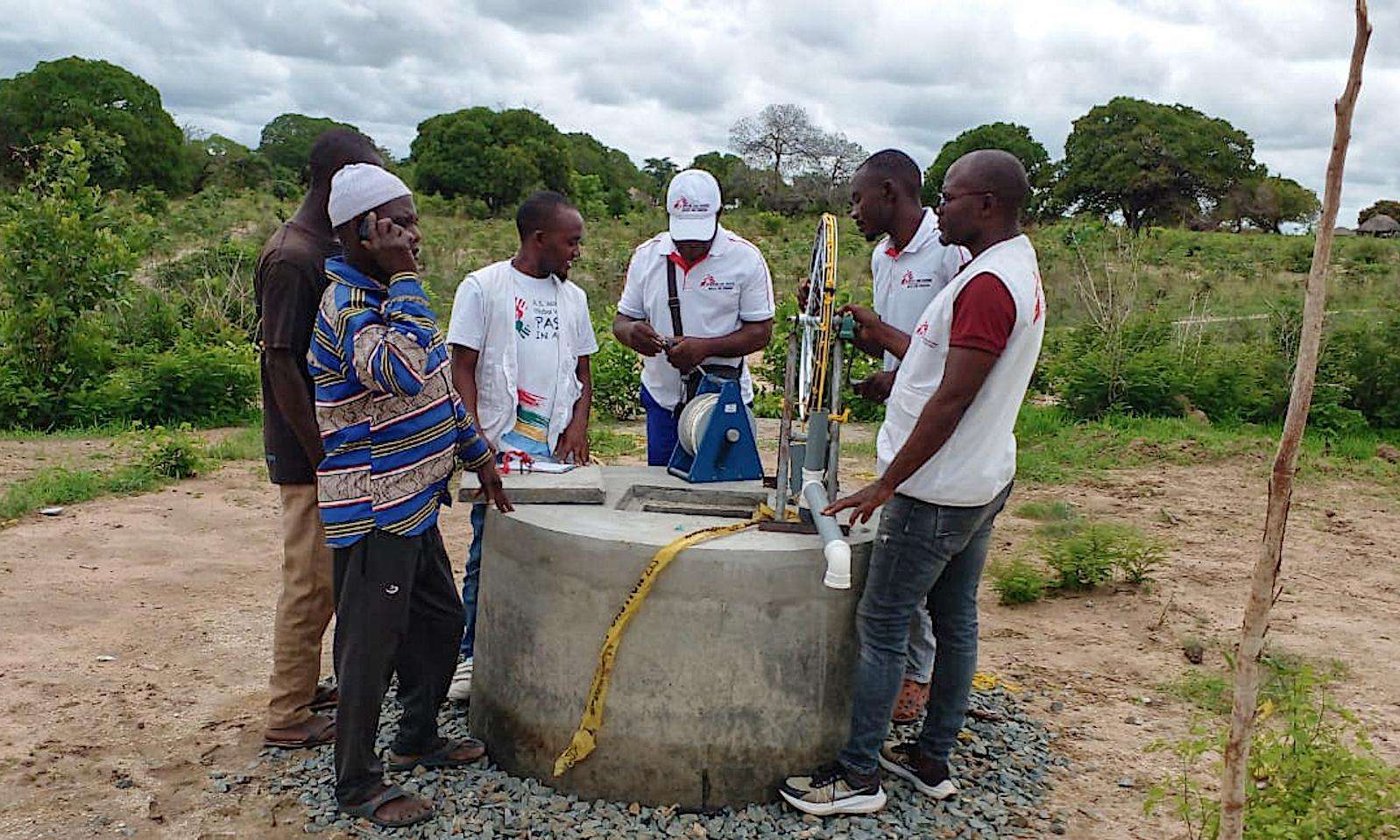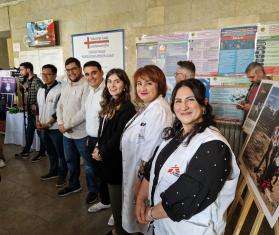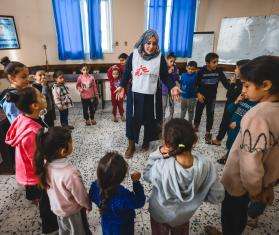Doctors Without Borders/Médecins Sans Frontières (MSF) water and sanitation teams are working with communities to tackle neglected tropical diseases in Nampula province, Mozambique—one of the countries most affected by the climate emergency.
The Mogovolas district in the northern province of Nampula is grappling with a concerning rise in cases of neglected tropical diseases (NTDs) like scabies, schistosomiasis, and lymphatic filariasis. These diseases thrive in settings with inadequate access to safe drinking water, basic sanitation, and where people are already feeling the adverse impacts of climate change. Irregular rainfall patterns, prolonged droughts, and the depletion of groundwater have exacerbated the situation, contributing to water scarcity.
The lack of safe drinking water not only accelerates the spread of endemic diseases but also heightens the risk of waterborne diseases such as cholera and diarrhea. Local communities, compelled by necessity, resort to stagnant water sources or endure long journeys to find water to fulfill their basic needs.
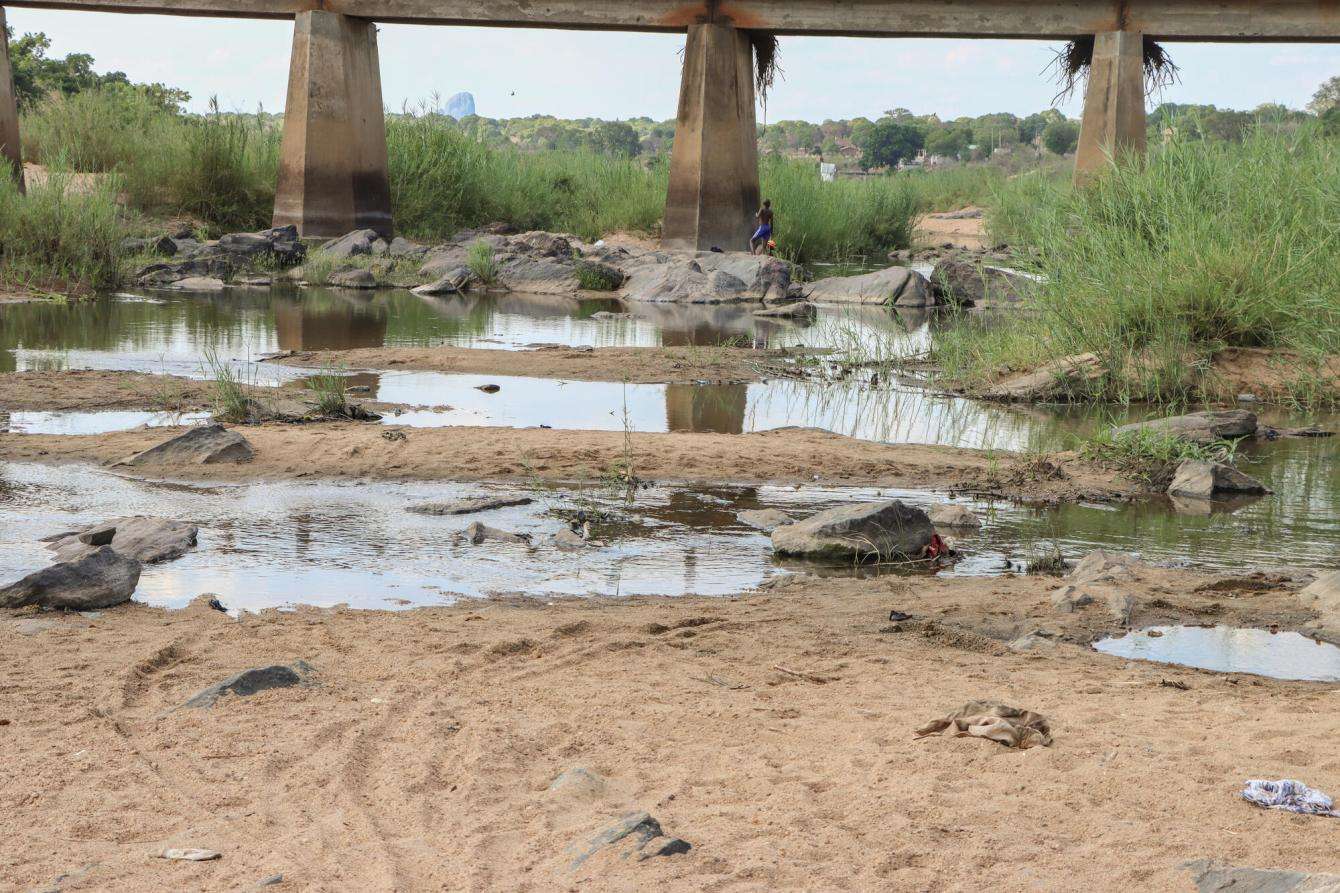
How climate change is impacting health by exacerbating water scarcity
A closer look at Mogovolas reveals a stark reality: The once-abundant wells and underground water sources have either diminished significantly or completely dried up as persistent droughts brought on by climate change threaten to escalate the water crisis. "The wells and boreholes that once sustained the community year-round now last five or six months,” said Yahya Latama, MSF logistics team leader.
Already, rivers like Meluli and Mutacaze, which are lifelines for thousands in the district’s central village of Nametil, are now distressingly depleted. Finding even a droplet of water is a stroke of luck.
During our visit to the Meluli River, we met Luzília, a 20-year-old who, due to the prolonged drought, dug small holes to collect water for household chores. "Obtaining water has become exceedingly difficult. Seven of us in my household rely solely on this water source," she said. The poor-quality river water is their only option.
"We've experienced illness a few times from drinking this water, yet sadly, we lack any other viable alternatives," she added. This situation, coupled with the adverse effects of climate change, presents a formidable and intricate challenge in Mogovolas. Addressing this challenge requires sustainable solutions and collaborative efforts to secure a healthier future for vulnerable people like Luzília.
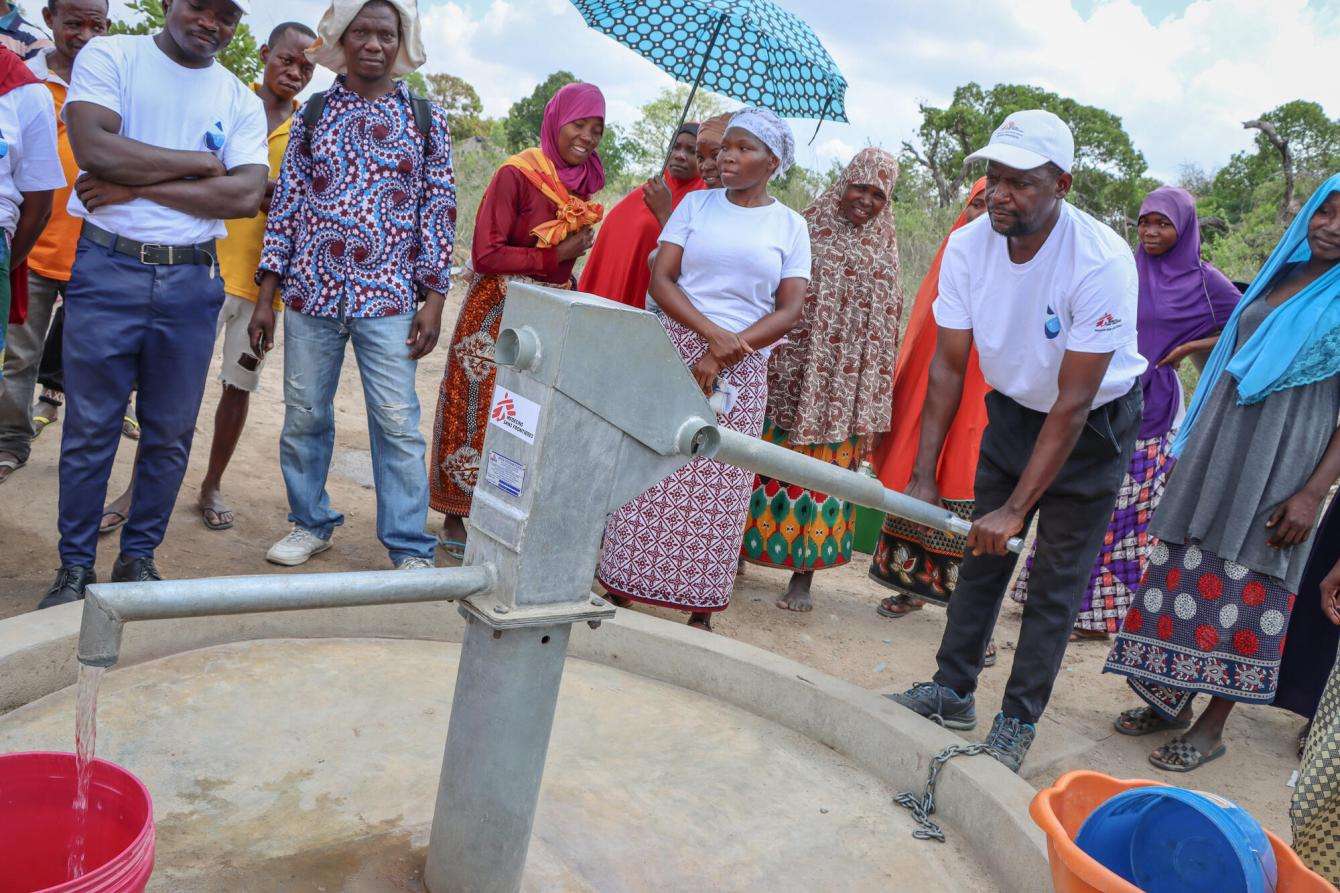
MSF's initiatives for sustainable water solutions
To tackle these issues, MSF is partnering with local authorities and communities to implement integrated water and sanitation initiatives in the area. The primary goal is to enhance living conditions and curtail the spread of schistosomiasis, scabies, and waterborne diseases by promoting proper hygiene practices.
This vital initiative not only shields the communities from exposure to the parasitic flatworm that causes schistosomiasis but promises a palpable enhancement in the overall quality of life. It encompasses health education, resilience building, and adaptation strategies through rainwater harvesting infrastructure and the rehabilitation of traditional wells and boreholes. Eight safeguarded wells, each equipped with hand pump systems, stand as beacons of transformation within these communities.
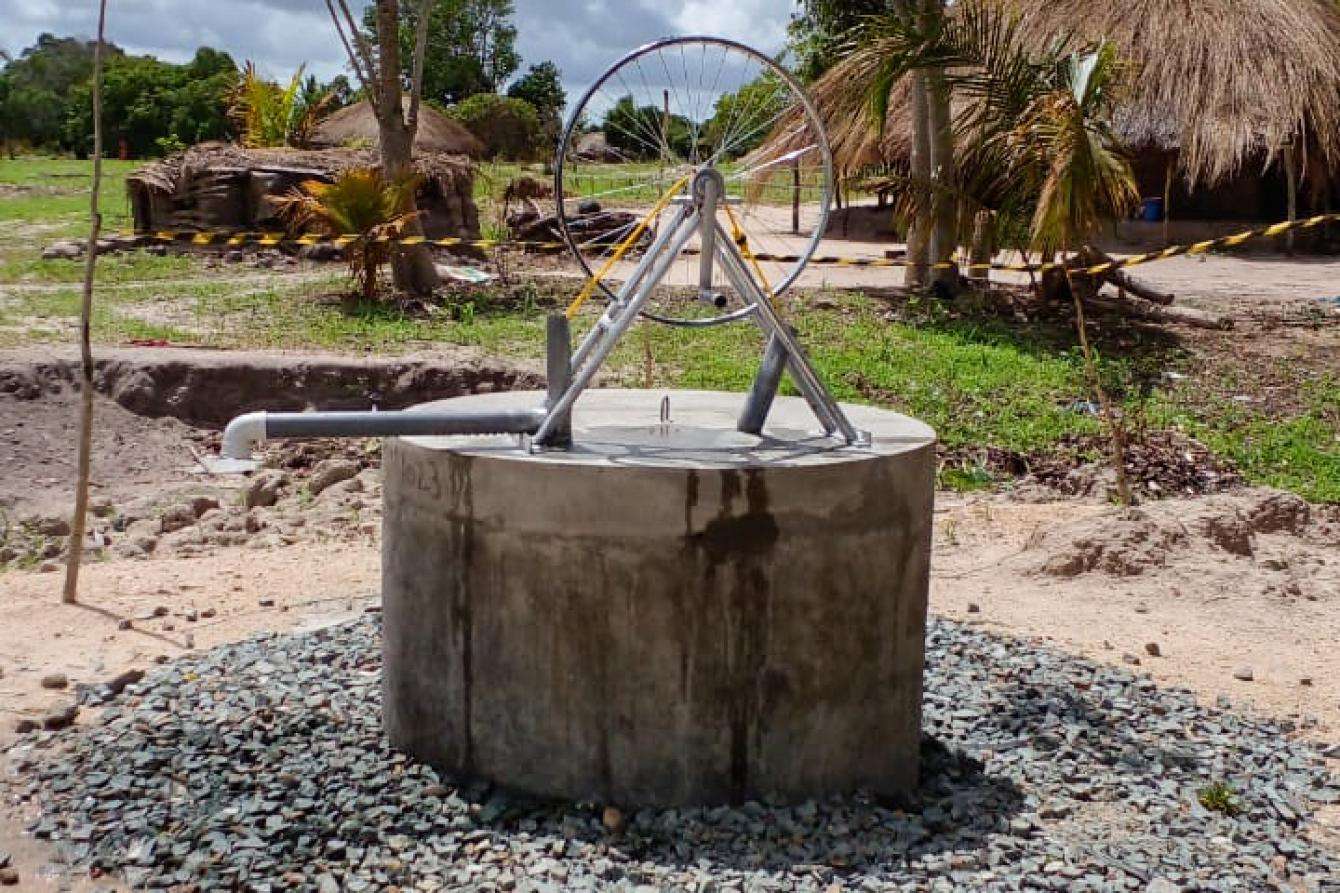
In parallel, MSF has been working to prevent people from having to undertake tough journeys in search of water by establishing water sources closer to these communities. Recently, our teams successfully established a dependable spring catering to the daily needs of the Namacaro community in Nametil. These sources are far more than just water outlets—they stand as symbols of hope for the community, paving the way for a future free of the grip of neglected tropical diseases.
"This water will be of great assistance to all of us here in our community,” said Atumane Amisse, the water committee leader in Namacaro collaborating with MSF. “We are currently compiling a list of beneficiaries of this water source, enabling us to manage this resource more effectively. The installation of this pump has completely changed our lives, as water scarcity was a painful reality. Now, people have free and easy access to quality water, which is essential for drinking, cooking, and personal hygiene."
In addition to improving safety and health in the Namacaro community, the new water source brings convenience. No longer will people have to wake up at 4 a.m. to trek for miles to fetch turbid water from traditional wells. There is a collective responsibility in ensuring the sustainability of clean, accessible water access, which paves the way for a healthier and more prosperous future for everyone in the community.
Pioneering community-led water management
The plan to curb NTDs in Mogovolas includes building community laundries to deter women and children—who predominantly use river water for washing or recreation—from using water sources contaminated with the larvae of the flatworm that causes schistosomiasis.
Beyond medical interventions for neglected tropical diseases, MSF is fostering community resilience through active engagement with local water committees. These committees receive training and guidance on water conservation, source maintenance, and proper hygiene practices to ensure sustained and safe access to drinking water.
Empowering these committees is pivotal in managing and maintaining water sources. The collaboration between MSF, communities, and local authorities aims not only to secure water availability but also to empower communities to efficiently and sustainably manage these vital resources. The communities themselves can drive the change they need to decrease the prevalence of neglected tropical diseases in Mogovolas—and ensure enduring resilience against the challenges posed by climate change.
MSF activities in Mozambique
Mozambique is one of the countries most vulnerable to the effects of climate change. Since 2022, MSF teams have been actively responding to climate-sensitive diseases in Nampula province, with the primary objective of addressing gaps in the health care system regarding neglected tropical diseases such as lymphatic filariasis and schistosomiasis, as well as vector-borne diseases like severe malaria and dengue.
